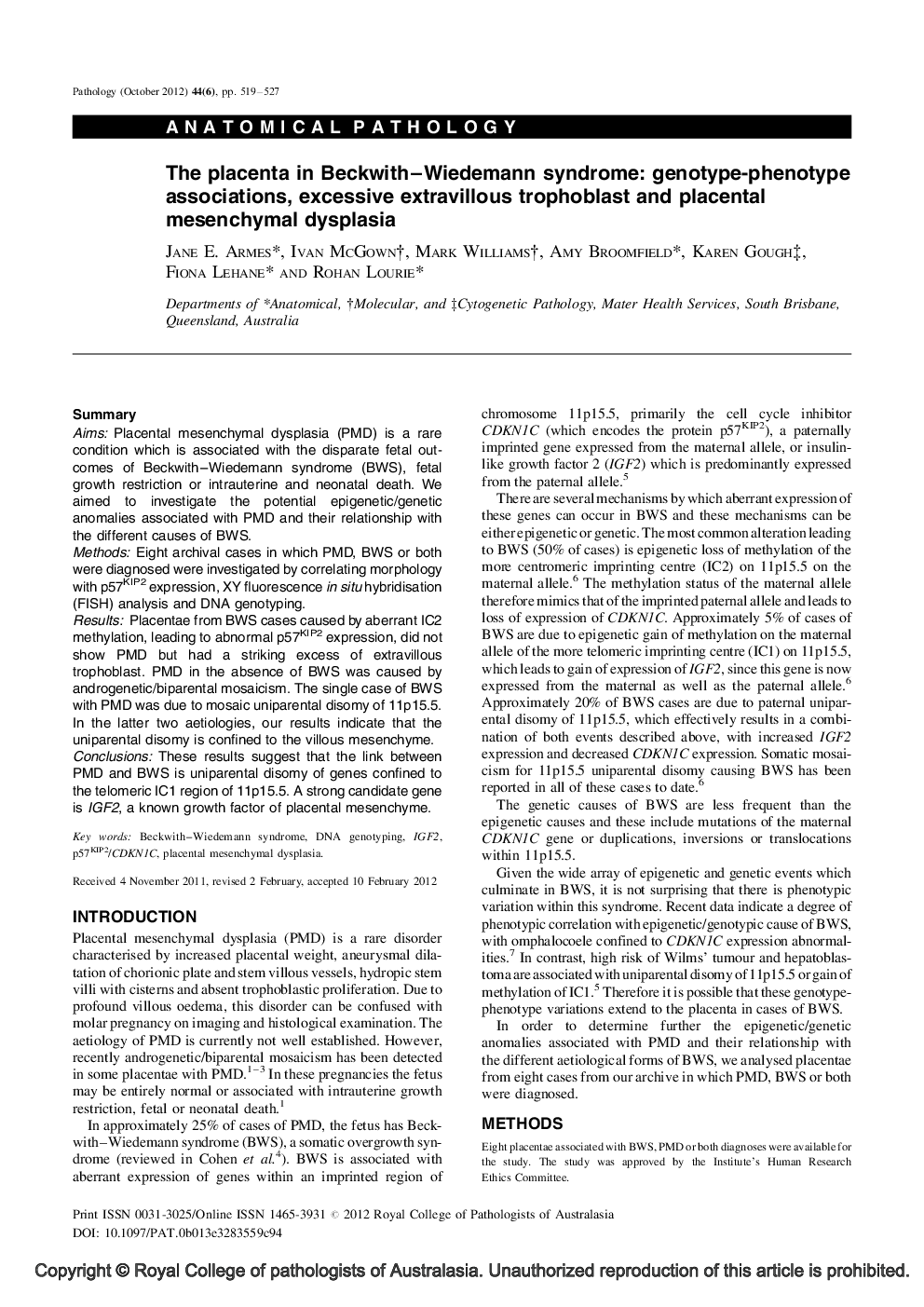| Article ID | Journal | Published Year | Pages | File Type |
|---|---|---|---|---|
| 105450 | Pathology | 2012 | 9 Pages |
SummaryAimsPlacental mesenchymal dysplasia (PMD) is a rare condition which is associated with the disparate fetal outcomes of Beckwith-Wiedemann syndrome (BWS), fetal growth restriction or intrauterine and neonatal death. We aimed to investigate the potential epigenetic/genetic anomalies associated with PMD and their relationship with the different causes of BWS.MethodsEight archival cases in which PMD, BWS or both were diagnosed were investigated by correlating morphology with p57KIP2 expression, XY fluorescence in situ hybridisation (FISH) analysis and DNA genotyping.ResultsPlacentae from BWS cases caused by aberrant IC2 methylation, leading to abnormal p57KIP2 expression, did not show PMD but had a striking excess of extravillous trophoblast. PMD in the absence of BWS was caused by androgenetic/biparental mosaicism. The single case of BWS with PMD was due to mosaic uniparental disomy of 11p15.5. In the latter two aetiologies, our results indicate that the uniparental disomy is confined to the villous mesenchyme.ConclusionsThese results suggest that the link between PMD and BWS is uniparental disomy of genes confined to the telomeric IC1 region of 11p15.5. A strong candidate gene is IGF2, a known growth factor of placental mesenchyme.
